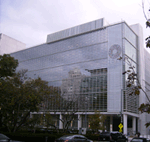Social Watch news
|
Published on Wed, 2010-10-27 07:34
Since it was set-up in 1997, Social Watch Philippines (SWP) has annually put forward a strategy of advocacy, awareness-building, monitoring, organizational development and networking. Based in Quezon City, one of the major cities in Metro Manila, the network that started with twenty seven civil society organizations and individuals has now grown to embrace more than a hundred citizens’ group, networks and individuals. |
|
Source: ESCR-net http://www.escr-net.org . Published on Wed, 2010-10-27 07:26
Source: ESCR-net NGO alternative or shadow reporting within the Convention on the Elimination of all forms of Discrimination Against Women (CEDAW) and the International Covenant on Economic, Social and Cultural Rights (ICESCR) can be strategically utilized to increase awareness on the rights and obligations contained in the treaties and promote integration of all women’s human rights. |
|
Published on Wed, 2010-10-27 07:23
A new initiative by the Inter-American Development Bank (IDB) called "Regional Project on Child Development Indicators” aims to produce, for the first time, statistical data on child development outcomes for children aged 24 to 59 months in Latin America and the Caribbean. Today, there are no comparable indicators for the region. The compiled comparable data will allow the measurement of child development in four areas: cognition, socio-emotional, language and emerging academic skills (early notions of reading, writing and mathematical capacity). |
|
Published on Wed, 2010-10-27 07:20
How well are individual countries progressing towards the Millennium Development Goals (MDGs)? Despite an extraordinary public campaign to mobilize support for the MDGs, including the UN MDG Summit in New York in September 2010, until now, there has remarkably little effort to track progress at the country level in a way that non-specialists could readily understand. |
|
Published on Thu, 2010-10-21 13:58
20 COUNTRIES ALONE CANNOT DEFINE THE DESTINY OF THE ENTIRE WORLD FOR SYSTEM CHANGE AND AN END TO BUSINESS AS USUAL, LET'S BUILD ANOTHER WORLD!
THE PEOPLE WILL NOT CONTINUE TO PAY FOR THE CRISIS. Join the People's Week of Collective Actions in Seoul, November 6 to 12, 2010 |
|
Published on Thu, 2010-10-14 11:44
|
|
Published on Fri, 2010-10-08 11:30
Tues 6 Oct (Washington D.C) |
|
Published on Fri, 2010-10-08 11:25
Source: Civicus The annual meeting of the governors of the International Monetary Fund (IMF) and World Bank in the first week of October is traditionally an occasion for protesters to rally against the system and criticise these sister institutions created at Bretton Woods at the end of World War II. |
|
Published on Fri, 2010-10-08 11:19
Intervention by Roberto Bissio, coordinator of Social Watch in The Post MDG Summit, assessment and discussion on next steps It is really very interesting to see the program to this debate starting with the phrase “We can end Poverty by 2015” which was highlighted around the UN building during the summit. The “we can” was probably a way of welcoming US president Barack Obama, one of the key speakers in the summit. In a way this slogan is raising the bar because the actual promise of the MDG’s was to halve poverty by 2015 and not ending it, so we welcome this increased aspiration, of course. |
|
Published on Fri, 2010-10-08 10:43
Source: UNCTAD Richard Kozul-Wright of UNCTAD's Unit on Economic Cooperation and Integration among Developing Countries has said that new development paths are an essential part of meeting the Millennium Development Goals (MDGs), and new levers of economic growth are necessary as many of the levers of the past decade will be absent in this one. |
SUSCRIBE TO OUR NEWSLETTER



